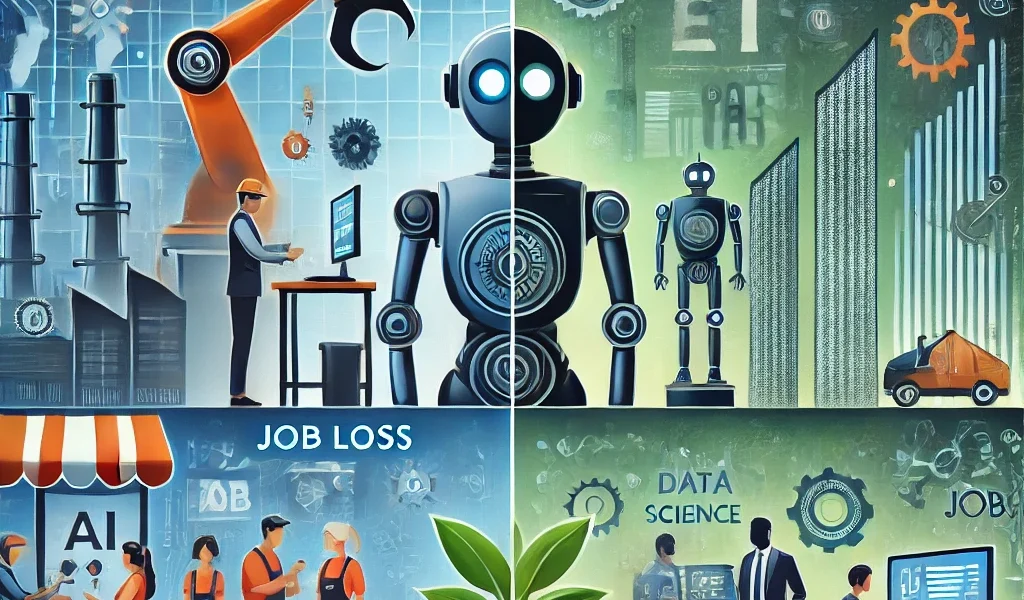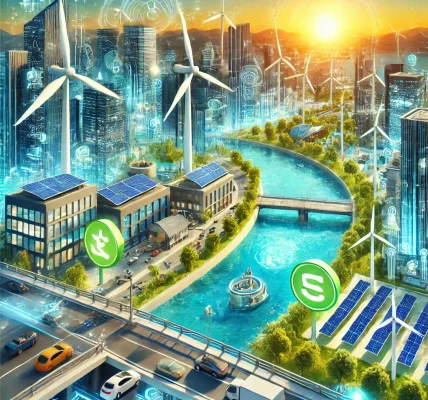Artificial Intelligence (AI) and automation are transforming industries, reshaping the job market, and influencing economic growth. While these technologies bring efficiency and innovation, they also raise concerns about job displacement and economic inequality. Are AI and automation creating more opportunities or eliminating jobs? Let’s explore.
1. AI & Automation: Driving Economic Growth
🚀 Boosting Productivity & Efficiency
- AI-powered automation enhances manufacturing, healthcare, finance, and logistics.
- Companies improve output, reduce costs, and increase profitability.
💰 New Business Models & Industries
- AI fuels new startups, robotics, and cloud computing industries.
- Tech-driven economies see higher GDP growth and global competitiveness.
📈 Investment & Market Growth
- AI-driven companies attract massive investments from venture capital and governments.
- The AI market is expected to reach $1.8 trillion by 2030, fueling economic expansion.
2. Job Creation vs. Job Displacement
🔄 AI Creating New Jobs
✅ Tech Jobs on the Rise – AI engineers, data scientists, cybersecurity analysts, and automation specialists are in demand.
✅ AI-Augmented Workforces – AI assists humans, increasing productivity in customer service, marketing, and healthcare.
✅ Reskilling & Upskilling Opportunities – Governments & companies invest in training workers for the AI economy.
⚠ AI Eliminating Traditional Jobs
❌ Manufacturing & Retail at Risk – Automation is replacing factory workers and cashiers.
❌ AI Replacing Administrative Roles – Chatbots & AI tools reduce the need for customer support and data entry jobs.
❌ Transport & Delivery Disruptions – Self-driving vehicles and drones may replace truck drivers and couriers.
3. The Future of Work: Adaptation & Policy Changes
📚 Lifelong Learning & Workforce Adaptation
- Governments & businesses must reskill displaced workers.
- AI education in coding, cybersecurity, and machine learning becomes essential.
🏛 Government & Economic Policies
- AI regulation & ethical policies ensure fair job transitions.
- Universal Basic Income (UBI) discussions rise as automation threatens employment.
💡 Human-AI Collaboration, Not Replacement
- AI should augment human work instead of fully replacing workers.
- Creative, emotional intelligence, and problem-solving skills remain valuable.
Conclusion: AI – A Double-Edged Sword for Jobs & Economy
AI and automation boost economic growth but reshape the job landscape. While new opportunities emerge, workers and policymakers must adapt to prevent economic disparity. The future depends on how society balances AI-driven innovation with human employment.
🤖 Will AI create more jobs than it eliminates? Let’s discuss! 🚀📊




